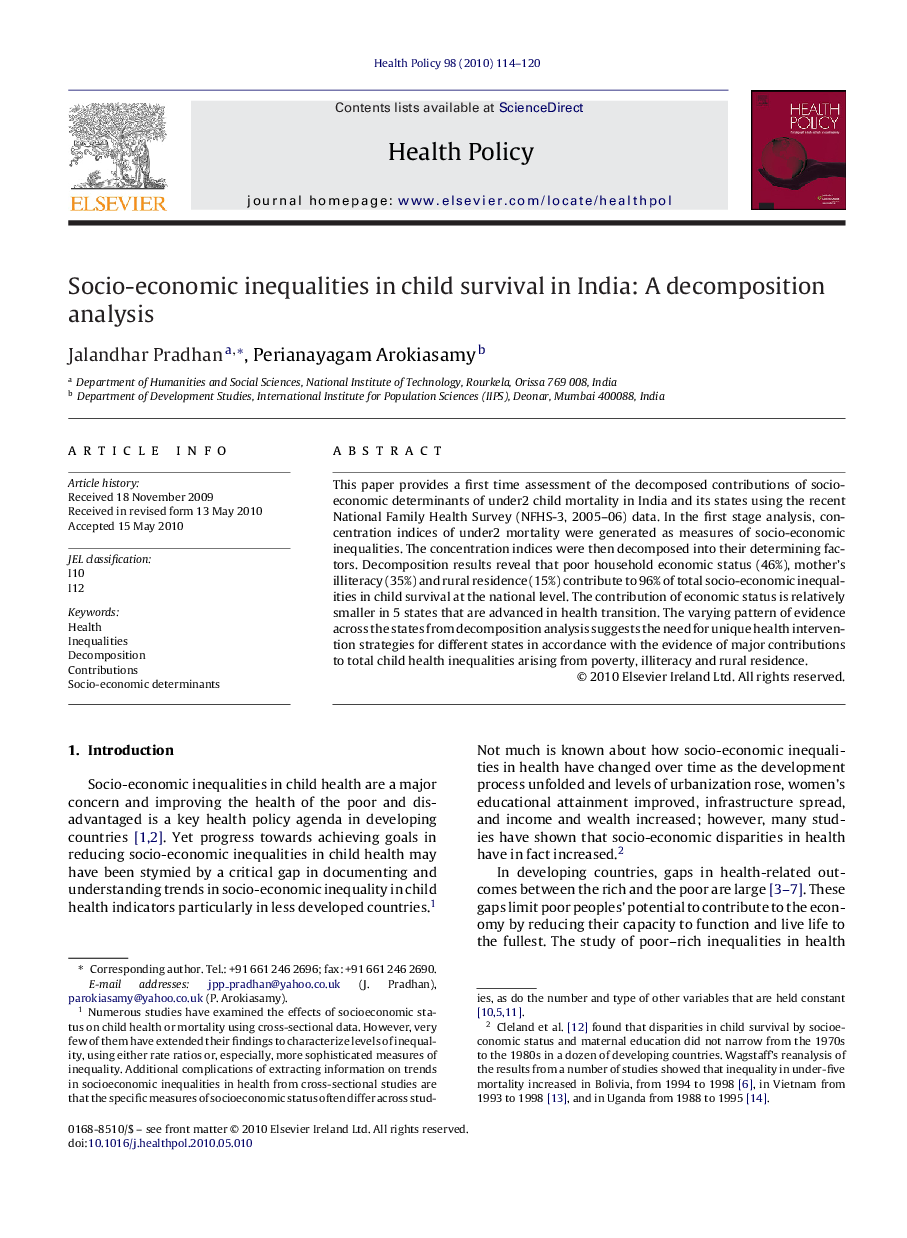| Article ID | Journal | Published Year | Pages | File Type |
|---|---|---|---|---|
| 4198223 | Health Policy | 2010 | 7 Pages |
This paper provides a first time assessment of the decomposed contributions of socio-economic determinants of under2 child mortality in India and its states using the recent National Family Health Survey (NFHS-3, 2005–06) data. In the first stage analysis, concentration indices of under2 mortality were generated as measures of socio-economic inequalities. The concentration indices were then decomposed into their determining factors. Decomposition results reveal that poor household economic status (46%), mother's illiteracy (35%) and rural residence (15%) contribute to 96% of total socio-economic inequalities in child survival at the national level. The contribution of economic status is relatively smaller in 5 states that are advanced in health transition. The varying pattern of evidence across the states from decomposition analysis suggests the need for unique health intervention strategies for different states in accordance with the evidence of major contributions to total child health inequalities arising from poverty, illiteracy and rural residence.
